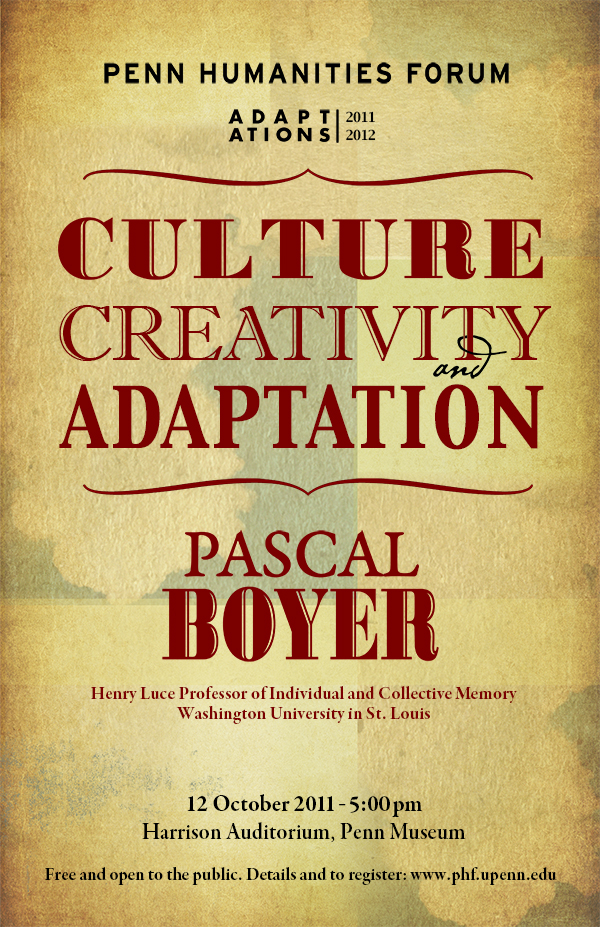Can evolutionary science explain human creativity? We like to think of the cultural and creative dimensions of human life as fundamental, timeless, unbounded by hard limits. But evolutionists and psychologists increasingly link human inventiveness to definite forms of mental machinery that have evolved and become more specialized over time. Renowned anthropologist Pascal Boyer explains how this scientific perspective can account for many features of otherwise puzzling cultural phenomena, from religion to romance.
Pascal Boyer studied philosophy and anthropology at the University of Paris-Nanterre and Cambridge, completing his graduate studies on how memory constrains the transmission of oral literature. His early fieldwork focused on the transmission of oral epics and religious narratives in Cameroon, and formed the basis for his first attempts to understand the cognitive abilities that make cultural transmission—and especially transmission of religious ideas—possible. He believes that certain innate mental systems predispose humans toward particular cultural elements, including the belief in supernatural beings. We are thus guided by instinct toward religious beliefs, “hardwired for God.” Boyer has explored these controversial ideas in three influential books: The Naturalness of Religious Ideas: A Cognitive Theory of Religion (1994), Religion Explained: The Human Instincts that Fashion Gods, Spirits and Ancestors (2001), and The Fracture Of An Illusion: Science And the Dissolution of Religion (2010).
Professor Boyer has taught at Cambridge, San Diego, Lyon, and Santa Barbara, and is currently on the faculties of both Psychology and Anthropology at Washington University in St. Louis, where he directs the Luce Program in Individual and Collective Memory. Earlier this year he was awarded a Guggenheim Fellowship to pursue new research on the dark matter of human culture.
Henry Luce Professor of Individual and Collective Memory, Washington University in St. Louis



